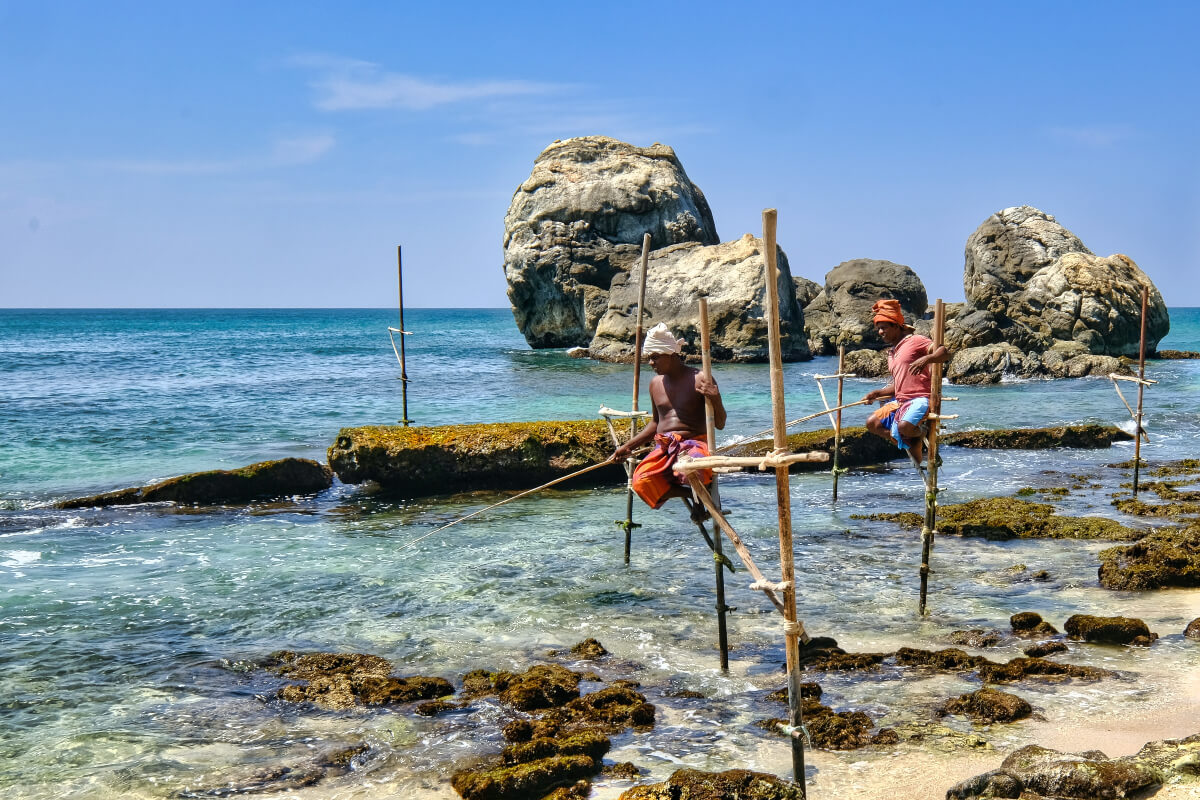What is sustainable travel?
In simple words, sustainable travel is a concept that requires finding a solution to maintain healthy tourism in the long run, without harming the natural and cultural environments. Every individual has a responsibility to minimize their negative impact on the planet and Sri Lanka tourism encourages the same.
Sustainable Tourism in Sri Lanka
While the global pandemic has destroyed the travel and tourism industry all across the world, it has also given rise to a unique opportunity, allowing the tourism sector to restart its operations with a new focus. Sustainable travel importance in Sri Lanka has been well recognized and the industry is focusing on environmentally-friendly ways as moving forward.
It is the responsibility of the tourism industry in Sri Lanka to protect natural, cultural and environmental resources, which are essential for the survival of the industry in the long run. Failure to protect these valuable resources will result in declining tourist numbers in the future.
One of the biggest eye openers that Covid-19 has brought about in the world is the importance of sustainable living. Hence sustainable travel is highly demanded by travelers and in order to remain competitive in the global arena, Sri Lanka also must adapt to these demands. Moreover, Sri Lanka is a small, tropical country in which tourism depends heavily on natural resources, and is very much vulnerable to climate change, which makes sustainability an important part of the tourism industry. As a result, Sri Lanka has initiated a National Sustainable Tourism Certification and has also become part of the Global Sustainable Tourism Council. These initiatives will strengthen the country’s position as a sustainable tourism destination while also developing the industry in a sustainable manner.
On a more personal level efforts at sustainable living are taken throughout the island. Innovative social enterprises such as the Good Market and Fair Trade are promoted by certain groups. They are committed to working with local businesses in producing organic foods and other products and services which also affect tourism in Sri Lanka in a responsible manner.
In order to restrict climate change, reduce pollution, protect the local environment, protect Sri Lanka’s rich culture and heritage, and save the natural resources of the country, focusing on sustainable tourism is very important for the island nation. Because Sri Lanka’s economy depends heavily on the tourism industry, the burden placed on natural and socio-cultural environments is a pressing one. Promoting sustainable living and responsible travel is essential if the country wants to continue depending on tourists for long term economic growth.
Sustainable travel tips when visiting Sri Lanka
When travelling in Sri Lanka, there are several opportunities to ensure responsible travel on a micro-level, which will add up and collectively influence the macro-level carbon footprint in Sri Lanka.
- The simplest step that you can take to ensure responsible travel is to buy local produce. Sri Lanka has several thousands of small eateries and roadside hotels in all parts of the country. Because of its varied culture, the cuisines and flavors you find in Sri Lanka will be varied. From rice and curry meals, to savory snacks, fresh fruits, pickled fruits, fresh juice and home made items, you will find a wide selection of both raw and prepared food items as you travel across the country.
- Community-focused tours and experiences will reduce carbon footprint as you travel from one part of the island to another. For example, efforts such as lagoon fishing while preserving the environment provide local communities an opportunity to earn an additional income while also ensuring their way of life is not harmed, thereby maintaining a sustainable livelihood.
- Choose hotels that provide eco-friendly accommodation, which injects money back into the local economy, ensuring that you are doing more good to the local people. The Sri Lankan tourism industry is increasingly promoting sustainable accommodation, so you shouldn’t have any trouble finding something to suit your needs.
- Always remember to switch off lights and water taps whenever not in use. Conserving energy and water is an important solution to responsible travel in Sri Lanka.
- Use energy efficient modes of transport as much as possible. Ideally, this would include traveling via public buses and trains in Sri Lanka. Not only will you be able to experience the local way of life by doing so, you will also catch glimpses of scenic natural landscapes that cannot be seen when using private road transport.
- Avoid littering on the roads and other places that you visit during your tour in Sri Lanka. Rubbish disposal bins are placed at several convenient locations throughout the country. All you have to do is lookout for one and put your waste in there. In fact, several attractions have bins categorized into different waste types so as to promote recycling and encourage sustainability.
- Respect local culture and immerse in it whenever possible. Be a part of social, humanitarian and conservation projects and get involved with the locals as an effort to open doors for future development.
- Follow the principles of ‘Leave no Trace’ wherever you travel in Sri Lanka. Particularly when visiting wildlife zones such as Yala National Park, respect the animals in their natural habitat, leave what you find the way it is, be considerate to other visitors and minimize the impact of your visit.
Conclusion
Global challenges such as climate change, reduction in biodiversity, and pollution levels increase the threat on the future of the travel industry in Sri Lanka. For this reason, heavy strategizing has been taking place with the help of the Sri Lankan government to figure out how these threats to the global sector can be lessened locally. Authorities have seen that promoting sustainable tourism is essential to build a positive brand image for Sri Lanka and increase the country’s competitiveness as a responsible tourism destination.

